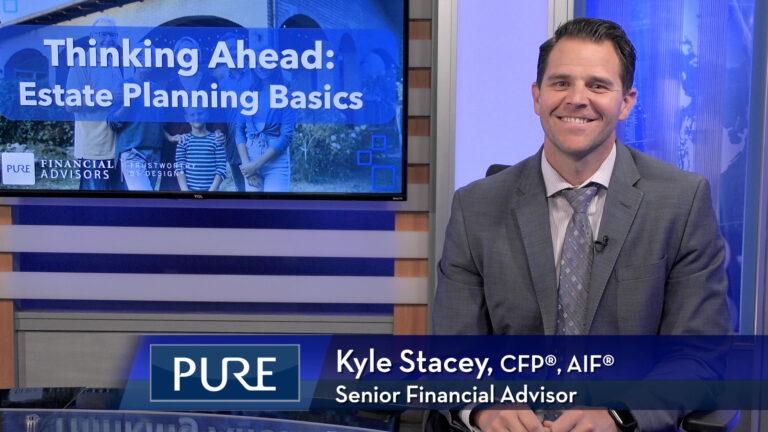In this Question of the Week, Matt Balderston, CFP® explains what a revocable living trust is. It is a legal document that allows you to transfer title of your assets to your heirs after you’ve passed away.
Transcription:
“Hi, I’m Matt Balderston, CERTIFIED FINANCIAL PLANNER™ with Pure Financial Advisors, and this is the Question of the Week. This week’s question is: What is a revocable trust?
 A revocable living trust is a legal document that allows you to transfer title of your assets to your heirs after you’ve passed away. If you just held assets individually and you passed away, you wouldn’t be able to sign those assets over to your heirs because you’re not here anymore. You would need to go to the courts, or your heirs would need to go to the courts and go through a probate process that’s very expensive, very time consuming and is a completely public process.
A revocable living trust is a legal document that allows you to transfer title of your assets to your heirs after you’ve passed away. If you just held assets individually and you passed away, you wouldn’t be able to sign those assets over to your heirs because you’re not here anymore. You would need to go to the courts, or your heirs would need to go to the courts and go through a probate process that’s very expensive, very time consuming and is a completely public process.
If you do a trust, there are three main people associated with it. The first is the grantor, that’s the person that puts the assets into the trust. The second is the trustee, that’s the person who controls the assets. Third is the beneficiary, that’s the person who benefits from them. In a revocable trust, you’re pretty much all three people so it doesn’t change how you deal with your assets, you just have to fill out a few forms to get each of those assets titled into the trust once the trust exists. Another reason people like to have trusts is to try to help avoid estate taxes. That’s not as big of a deal as it used to be because the current amount you can pass on to your heirs is $5,430,000. Very few Americans fall into that category. That number is as of 2015 and it goes up every year with inflation. So, if you’re in your 40’s now looking into a trust, by the time you’re 70 or 80 years old when it really comes into play, the limit could be enormous. Make sure you talk to an attorney if you’re going to be dealing with a trust because almost everything I just said has a caviat associated with it given this is a legal issue but this should give you a pretty good idea of how a trust works.
Until next time, I’m Matt Balderston and this has been the Question of the Week.”












